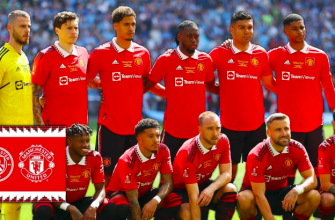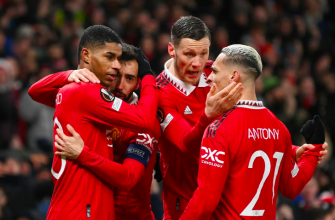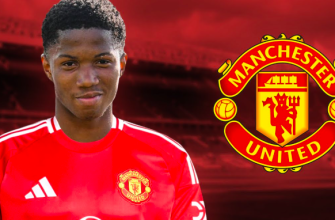Manchester United, a cornerstone of English football, is currently navigating a complex financial landscape. The club’s recent financial disclosures have unveiled significant losses, managerial changes, and strategic shifts that have profound implications for its future.

Financial Performance Overview
In the final quarter of 2024, Manchester United reported a revenue decline of 12%, bringing in £198.7 million compared to £225.8 million during the same period the previous year. This downturn contributed to an operating profit of £3.1 million, a sharp decrease from the £27.5 million recorded in the corresponding quarter of 2023.
Impact of Managerial Changes
A significant portion of the financial strain stems from the club’s decision to part ways with manager Erik ten Hag and his coaching staff, alongside sporting director Dan Ashworth, in October 2024. The combined severance packages for these departures amounted to £14.5 million. These decisions, while aimed at revitalizing on-field performance, have added to the club’s financial burdens.
Revenue Streams and Challenges
The club’s absence from the UEFA Champions League has notably impacted broadcasting revenues, which saw a 20.4% decline in the first quarter of the 2024-25 financial year. This shortfall underscores the financial repercussions of not participating in Europe’s premier club competition.
Cost-Cutting Measures
In response to mounting financial pressures, Manchester United has implemented several cost-cutting initiatives. These include a redundancy program affecting over 200 staff members and the controversial decision to raise matchday ticket prices to £66 per game, without concessions for children or pensioners. These measures aim to achieve savings between £30 million and £40 million but have faced criticism from supporters and stakeholders.
Ownership and Strategic Direction
The financial challenges have reignited discussions about the club’s ownership structure. In February 2024, Sir Jim Ratcliffe’s Ineos acquired a 27.7% stake in Manchester United, investing over £1 billion. Despite initial optimism, the subsequent period has been marked by managerial upheavals, cost-cutting measures, and on-field struggles, leading to widespread dissatisfaction among fans and staff.
Manchester United stands at a critical juncture, facing substantial financial and operational challenges. The interplay of managerial changes, revenue declines, and strategic cost-cutting measures has created a complex scenario that requires careful navigation. The club’s ability to address these issues effectively will be pivotal in determining its future trajectory and maintaining its esteemed position in the world of football.



